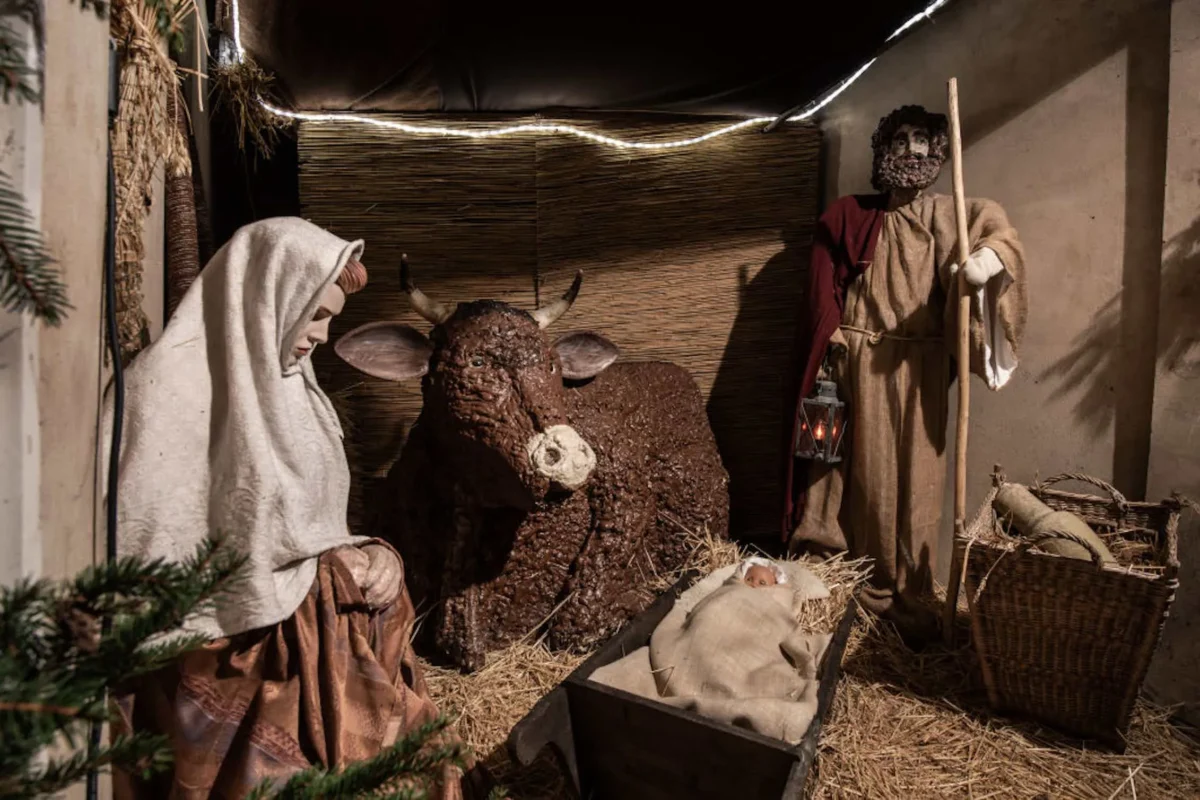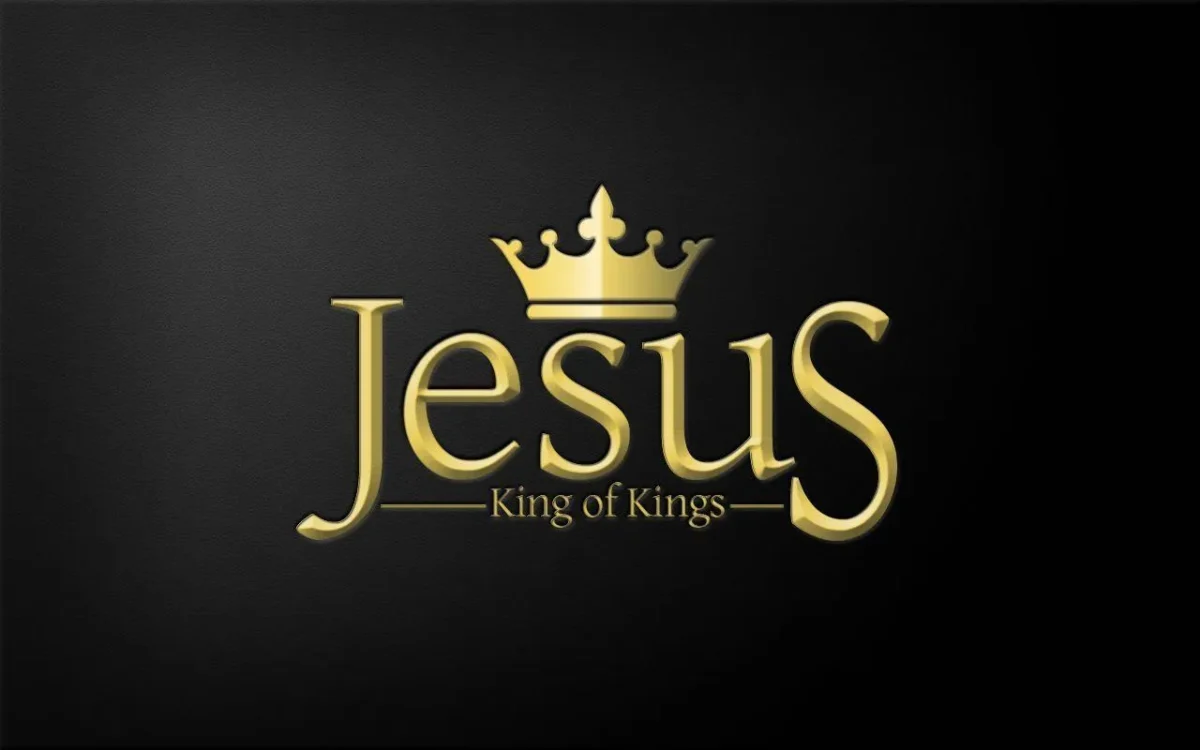The 7 Names of God in Christianity: Understanding Their Significance and Meaning
As a youth pastor at a Christian church, I often hear the question, “What are the 7 names of God?” This is an important topic for anyone who wants to deepen their relationship with God and better understand His character.

In this article, we’ll explore the concept of the 7 names of God in Christianity, their significance and meaning, and the biblical context and usage of these names. By understanding these names, we can gain a deeper understanding of who God is and what He desires for our lives.
Whether you’re a seasoned Christian or just beginning your spiritual journey, this article is for you. So keep reading to learn more about the 7 names of God and their significance in Christianity.
An introduction to the concept of the seven names of God in Christianity.

The concept of the 7 names of God in Christianity is a fascinating topic that can provide insight into the nature and character of our Creator. These names are not just random titles, but they represent different aspects of God’s personality and attributes.
The first name is Yahweh, which means “I am who I am.” This name represents God’s eternal presence and self-existence. He has always existed and will always exist, without beginning or end.
Next is Jehovah Jireh, meaning “the Lord will provide.” This signifies God’s faithfulness to His people. He provides for our needs in ways we cannot even imagine.
Thirdly we have Jehovah Rapha which translates to “the Lord who heals.” This title emphasizes how God cares deeply about our well-being – both physically as well as spiritually -and has the power to heal us from all kinds of afflictions.
Jehovah Nissi comes next; it means “the Lord my banner” symbolizing a rallying point for believers when faced with challenges or enemies
Then there’s El Shaddai-“God Almighty” which represents Gods supreme power over everything he created
Jehovah Shalom on its part stands for ‘’Lord Of Peace’’, indicating that peace originates from within Him & his followers should seek this peace above all others
Lastly The Holy Spirit known also as Ruach HaKodesh serves as an intercessory force between man & god
As Christian believers seek deeper relationship with their creator these seven unique identities can be used by them during prayer times leading to further understanding about gods identity
The significance and meaning behind each of the seven names of God.
The seven names of God are powerful and meaningful, each one representing a different aspect of his divine nature. Understanding these names can deepen our relationship with him and provide guidance in our daily lives.

First, there is Yahweh, which means “I Am.” This name emphasizes God’s existence as the eternal being who always was and always will be. It reminds us that he is present in every moment of our lives.
Next is Jehovah-Jireh, meaning “The Lord Will Provide.” This name reflects God’s ability to meet all of our needs. He promises to provide for us physically, emotionally, and spiritually if we trust in him.
Another name is Jehovah-Rapha which means “The Lord Who Heals”. This speaks to his power to heal not just physical ailments but emotional wounds as well
There’s also El Shaddai which translates into “God Almighty”. It speaks about His omnipotence over everything on earth whether it be people or nature itself
Jehovah-Shalom means “the Lord Is Peace”. In this title we see how god brings peace into chaotic situations like storms or battles
Then there’s Jehovah-Nissi meaning “the lord my banner”- where the banner represents protection from enemies during battle
Finally ,there’s Adonai – typically translated as ‘Lord’, but holds deeper connotations such as ownership by Him; acknowledging Him authority over oneself.
In conclusion , understanding these 7 Names can help Christians better understand who their almighty savior really acts like & what powers they offer .
Exploring the Biblical context and usage of these names.
The Bible is full of names and titles for God, each revealing a different aspect of His character and nature. Among these names are seven that are particularly significant: Jehovah-Jireh, Jehovah-Rapha, Jehovah-Nissi, El-Shaddai, Adonai, Yahweh-Tsidkenu and Yahweh-Shalom.
Jehovah-Jireh means “the Lord will provide,” reminding us that God is our provider in all things. Whether it’s material needs or spiritual guidance we seek from Him.

Jehovah-Rapha means “the Lord who heals,” pointing to God as the ultimate source of physical and emotional healing.
Jehovah-Nissi means “the Lord my banner,” symbolizing victory over enemies through faith in Him. It encourages us to trust in the power of God when going through difficult times.
El-Shaddai translates to mean “God Almighty” or “God All-Sufficient” highlighting his omnipotence (all-powerful) nature which gives believers peace knowing that He can handle any situation beyond human comprehension
Adonai refers to him as master representing his sovereignty over everything on earth including humanity
Yahweh-Tsidkenu meaning “The LORD Our Righteousness,” this name emphasizes His holiness; he is judged by no one since He himself judges righteously.

Lastly but not least Yahweh Shalom highlights his peacefulness as it implies ‘peace be with you’
Understanding these names deepens our understanding of who God is and helps us connect more intimately with Him. As Christians let’s continue seeking knowledge about him so we can grow spiritually into better versions ourselves daily!
How understanding these names can deepen one’s relationship with God?
Understanding the seven names of God can deepen one’s relationship with Him in profound ways. Each name reveals a different aspect of His character and nature, allowing us to know Him more intimately.
The first name is Yahweh, which means “I am.” This name signifies God’s self-existence and unchanging nature. It reminds us that He is always present and faithful, even when we cannot see or feel His presence.
The second name is Jehovah-Jireh, meaning “the Lord will provide.” This emphasizes God’s provision for our needs both physically and spiritually. He promises to meet all our needs according to His riches in glory.

Jehovah-Rapha means “the Lord who heals,” highlighting God’s ability to bring physical healing as well as emotional and spiritual restoration. We can trust that He has the power to heal every area of our lives.
Jehovah-Nissi translates as “the Lord is my banner” or “my victory.” This represents how God fights for us against our enemies – whether they are physical or spiritual – just like a victorious banner bearer would do on the battlefield.
El-Shaddai refers to God as Almighty One who pours out blessings upon His people abundantly. It speaks about how much love he shows his children by providing them with everything they need without any hesitation
Immanuel means “God with Us,” emphasizing Christ’s deity while also revealing his intimate connection with humankind through being born into human flesh
Finally, Jehovah-M’Kaddesh signifies that “I Am Who Sanctifies You.” The word sanctify implies setting apart something entirely for holy purposes—meaning this particular title highlights Gods consistent holiness throughout time.

By understanding these names of God we gain better insight into what it truly means when we say things like ‘God loves me’, ‘He provides for me’, ‘He brings healing,’ etceter
Conclusion and reflection on the importance of knowing God’s various names.
As a youth pastor, I understand the importance of knowing God’s different names. The seven names of God – Jehovah Jireh, Jehovah Rapha, Jehovah Nissi, Jehovah M’Kaddesh, Jehovah Shalom, El Shaddai and Yahweh – each reveal a unique aspect of His character and nature.
Jehovah Jireh means “The Lord will provide”, reminding us that God is our ultimate provider in times of need. He can be trusted to meet all our needs according to His riches in glory.
Jehovah Rapha means “The Lord who heals”, reminding us that God is our healer both physically and emotionally. He has the power to heal any sickness or disease.
Jehovah Nissi means “The Lord my banner”, indicating that we should trust in Him as we face battles in life. Just as an army would go into battle under their banner for protection and guidance; so too should we trust in the guidance and protection of our Heavenly Father.

Jehovah M’Kaddesh means “The Lord who sanctifies”, pointing out how through Christ Jesus’ sacrifice on the cross at Calvary he made it possible for believers to be set apart from sin through his blood
El Shaddai which translates as “God Almighty” reminds us just how powerful he truly is with no limit whatsoever hence making it possible for him to do anything within his power such providing comfort whenever needed by those who seek him with pure hearts
Yahweh simply refers to self-existent one or eternal one thus highlighting his ever-existing presence throughout time past present future since before creation
Knowing these names helps deepen our relationship with Him by understanding more about His character traits thereby enabling us experience genuine intimacy while also increasing faith levels during challenges.
In conclusion dear reader , Knowing these different names reveals more about Gods
Conclusion

When you take the time to learn and understand each of the 7 names of God, it can bring a newfound appreciation and connection with your faith. It helps us to understand what these sacred titles mean in different contexts, as well as how they are relevant today. By deepening our understanding of God’s names we can grow closer with Him and strengthen our relationship. I invite you on this journey – come discover each one for yourself!
















